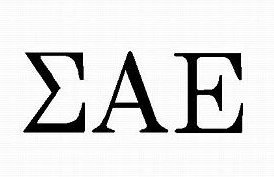A video depicting brothers of Sigma Alpha Epsilon fraternity (SAE) at the University of Oklahoma singing a racist chant on a charter bus went viral on March 7.
The response from people all across the country exploded and the reaction from brothers of the Florida Alpha Chapter at UM was no different.
“The brothers of our chapter were not only appalled and disgusted by the racism shown in the viral video, but we wanted to stand out against it,” said Sean Mulligan, president of the UM chapter.
The fraternity took a completely oppositional stance. The brothers posted a message on their Facebook page about a week later.
“SAE Florida Alpha stands for friendship, loyalty, brotherhood, honor and fraternity. Racism and discrimination of any type do not and will never have a place in those values,” the fraternity wrote in the official statement.
For Mulligan and the rest of the Miami chapter, the scandal at OU did not remain there. All SAE chapters became slightly tinged by the horrific acts, according to Mulligan.
“This has been a trying time for not only our national fraternity, but for our chapter as well,” Mulligan added. “We have a very diverse brotherhood here at UM, and this controversy has affected all of us in a big way.”
About 48 percent of incoming first-year students identified as a race other than white, according to the UM Office of Planning, Institutional Research and Assessment (PIRA). Yet students like Param Desai say fraternities and sororities in a place as diverse as UM’s campus continue to struggle with representation.
“I think overall there is a huge misrepresentation of different cultures in Greek life here at UM,” said Desai who is a brother of the Delta Epsilon Psi, a South Asian service fraternity. “Other schools have much larger communities of multiethnic fraternities and sororities that our school just does not have.”
DEP is one of five fraternities and sororities housed under the Multiethnic Greek Council (MGC), one of the umbrella organizations for culturally-based Greek groups.
Desai, a sophomore psychology and economics major, is a brother of the Delta Epsilon Pi multiethnic fraternity. His family is originally from India, and although he has never faced prejudice at UM, he said Greek life could be more diverse.
“Diversity prevents us from looking at the world in a narrow-minded fashion,” Desai said. “Without it, we would all be thinking the same thoughts and bringing similar experiences to the table.”
Desai says that although the racial history of his fraternity was not an overruling factor in his decision to join a MGC organization, he chose a multiethnic brotherhood because it had the traits that he was looking for in a fraternity.
Mulligan said that all Greek groups on campus value diversity regardless of ethnic or cultural affiliations.
“Diversity is so important because it brings in different opinions, different points of view … It makes you think of things in different ways,” he said. “We don’t believe in any kind of discrimination – racism, sexism, whatever.”
Throughout the rush process, SAE searches for pledges who embody the ideal brother – a “true gentleman.” The true gentleman creed asks SAE brothers for civility and respect in all circumstances, describing a man “whose deed follows his word; who thinks of the rights and feelings of others, rather than his own.”
According to Mulligan, an issue like what occurred in Oklahoma would never happen at UM, but the contrast between the diversity on UM’s campus and the apparent racism at OU should not be a dismissal of the larger issue with racism.
“I don’t think that these issues of discrimination are just this one incident,” Mulligan said. “I don’t think they only happen in one state, in one fraternity, in one place. There is still discrimination in this country.”
Dean Tony Lake shared the same sentiment as Mulligan. Lake’s experience working with Greek life at different universities gave him a measuring stick when he started working at the university in 2008.
“Is it perfect here? Of course not, but I do think that it’s better than in other places,” Lake said.
According to Lake, upbringing can play a crucial part in determining a person’s prejudice. Those born in places such as South Florida, for example, typically have an exposure to a greater mix of culture than those reared in a more racially homogenous part of the nation or the world.
“If you’re raised in a place where you have little interaction with people who are different from you in some way, and you aren’t comfortable enough with yourself to ask questions that expose your ignorance rather than make assumptions, it’s easy to fall into the trap of prejudice,” Lake said.
The problem sits in the vicious circle of ignorance, according to Lake. A prejudiced person will often be unaware of his or her own prejudice, creating a dangerous mindset.
“The scary thing … is that the racist will rarely willingly see themselves as either ignorant or afraid, and this is precisely what keeps us stuck in a place where progress is difficult,” Lake said.
With the buzz of negative media attention on chapters of SAE all throughout the country, Mulligan continues to be proud of the UM chapter’s brotherhood for upholding the spirit of gentlemanliness and charity.
The chapter’s philanthropic efforts have raised hundreds of thousands of dollars for charitable causes including most recently, $54,000 for the Children’s Miracle Network.
“I want people to know the good things we are doing,” Mulligan said. “… I’m so proud of what SAE has done.”






